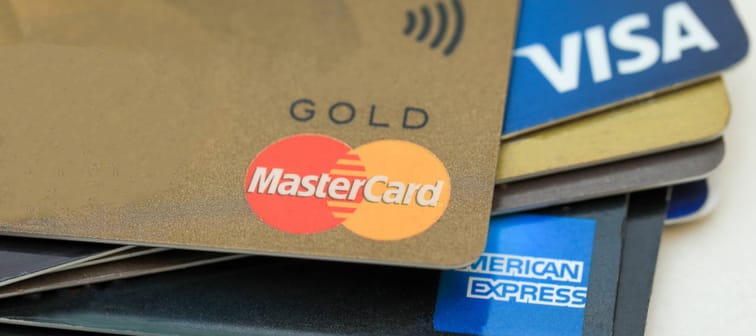When you can label a debt as “good”
You can define good debt in two ways, according to Wilmot George, vice president of tax, retirement and estate planning at CI Investment. The first is related to net worth.
“A general rule of thumb is that if the debt increases your net worth or helps create future value, then it’s considered to be good debt,” he says.
Debt that falls into this category can include money borrowed to purchase an investment property or, in limited cases, reliable stocks and bonds. That kind of debt should kick off tangible returns if the investments aren’t high risk. The definition also can extend to credit you use to pay for an education or start a business, endeavours with the potential to earn you future income.
The second category of so-called good debt is the purchase of assets that don’t necessarily generate income but greatly improve your quality of life, such as a car that’s not overly extravagant or your family’s primary home.
“A car’s a funny one,” George says. “It’s a depreciating asset, so it can fall into the bucket of ‘bad debt,’ but if you need it to go to work, then it significantly improves your life and can fall into the ‘good’ bucket.”
Bad debt, on the other hand, often is found with purchases of items for personal use that lose value quickly as you own them. An 80-inch flat-screen TV might make your evenings more enjoyable, but if it turns out you can’t afford it and need to sell it on Kijiji, you’ll only get back a fraction of what you paid.
“You’ve really got to be careful when you’re borrowing money to buy depreciating assets because you’re losing value there, but your loan still needs to be repaid,” George says.
Empower Your Investments with Q Trade
Discover Q Trade's award-winning platform and take control of your financial future. With user-friendly tools, expert insights, and low fees, investing has never been easier.
Start Trading TodayGood debt can help your taxes
Using debt wisely can reduce your tax bill because you sometimes can deduct the interest you pay on a debt from the amount of taxes you owe.
But you can only write off that interest when you buy assets with potential to earn income, such as stocks and bonds.
“If a stock has the potential to pay dividend income, or a mutual fund has the potential to pay dividend distributions or interest distributions, those are situations where the interest is normally tax deductible,” George says.
When it comes to your mortgage, the interest is only deductible if the home is used to generate income, often as a rental property. The interest you pay on your primary residence or vacation home, for example, will not save you any money come tax time.
“You don’t want to automatically assume mortgage interest is deductible because in a lot of cases, it’s not,” George says.
And even good debt to buy investments won’t save borrowers from paying capital gains taxes.
“You don’t get away from your capital gains tax just because you used borrowed money to buy the asset. You still have your tax liability on that end,” he says.
Good debt isn’t risk-free
Even with good debt you’re left to hope that the asset you purchase will actually increase in value or help you drive future income. That’s never guaranteed, so never borrow more than you can pay back, and don’t count on profits from any single asset.
In other words, be prepared that you might lose money in two ways anytime you take on debt to try to grow your wealth. For example, your home could shed value if housing prices sink in your neighbourhood, and you’ll still owe your mortgage.
“When you borrow money that you can’t afford to lose, and the investment goes the wrong way, you’ve still got to pay back that loan, and you’ve lost money on that investment,” George says.
That’s why it’s important to understand both sides of good debt — the potential upside for your net worth and the risk to your cash flow if your investments don’t pan out.
“Before engaging leveraging strategies, you really need to think about how you’re going to use those assets,” George says, “and really think about whether or not you can survive the potential downside should the investment go the wrong way.”
Sponsored
Trade Smarter, Today
With CIBC Investor's Edge, kick-start your portfolio with 100 free trades and up to $4,500 cash back.






